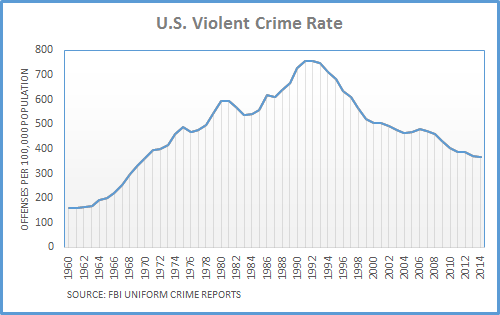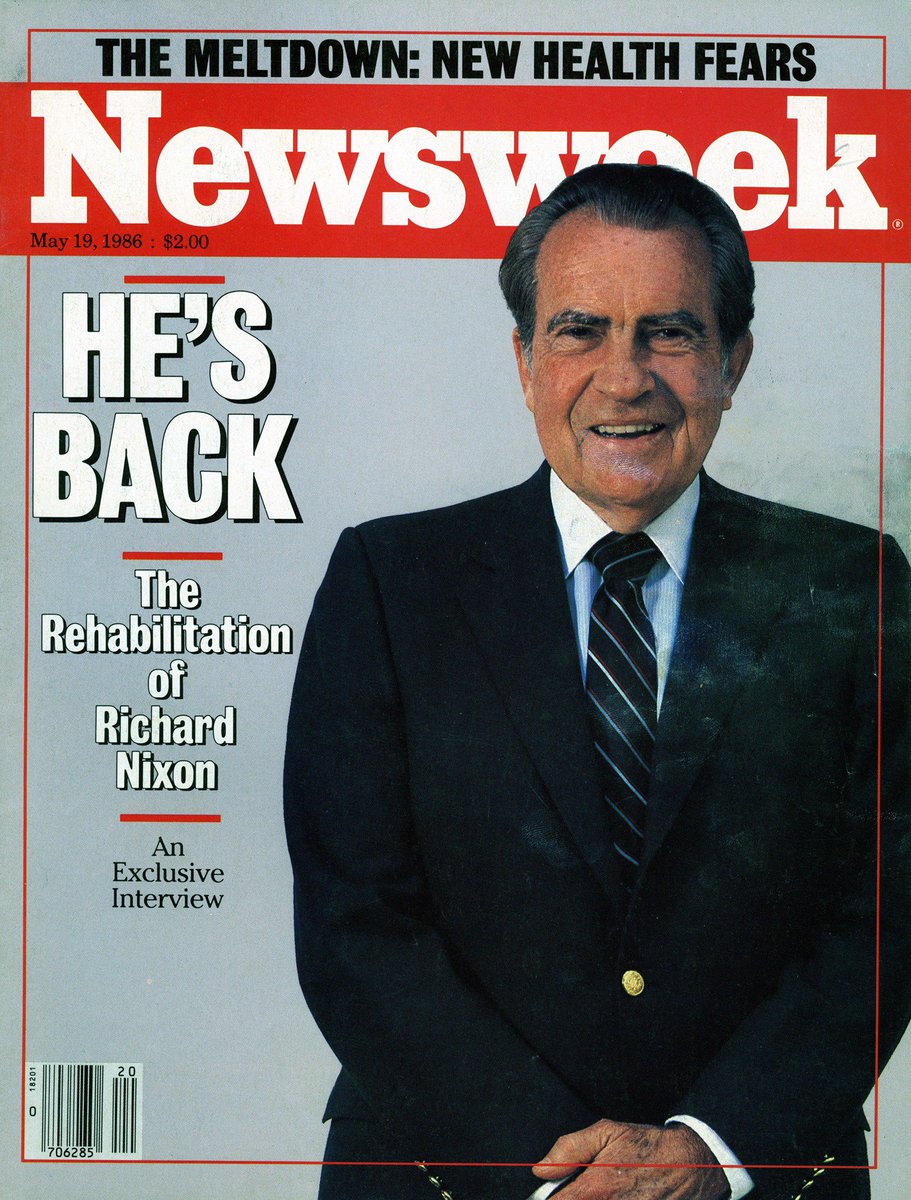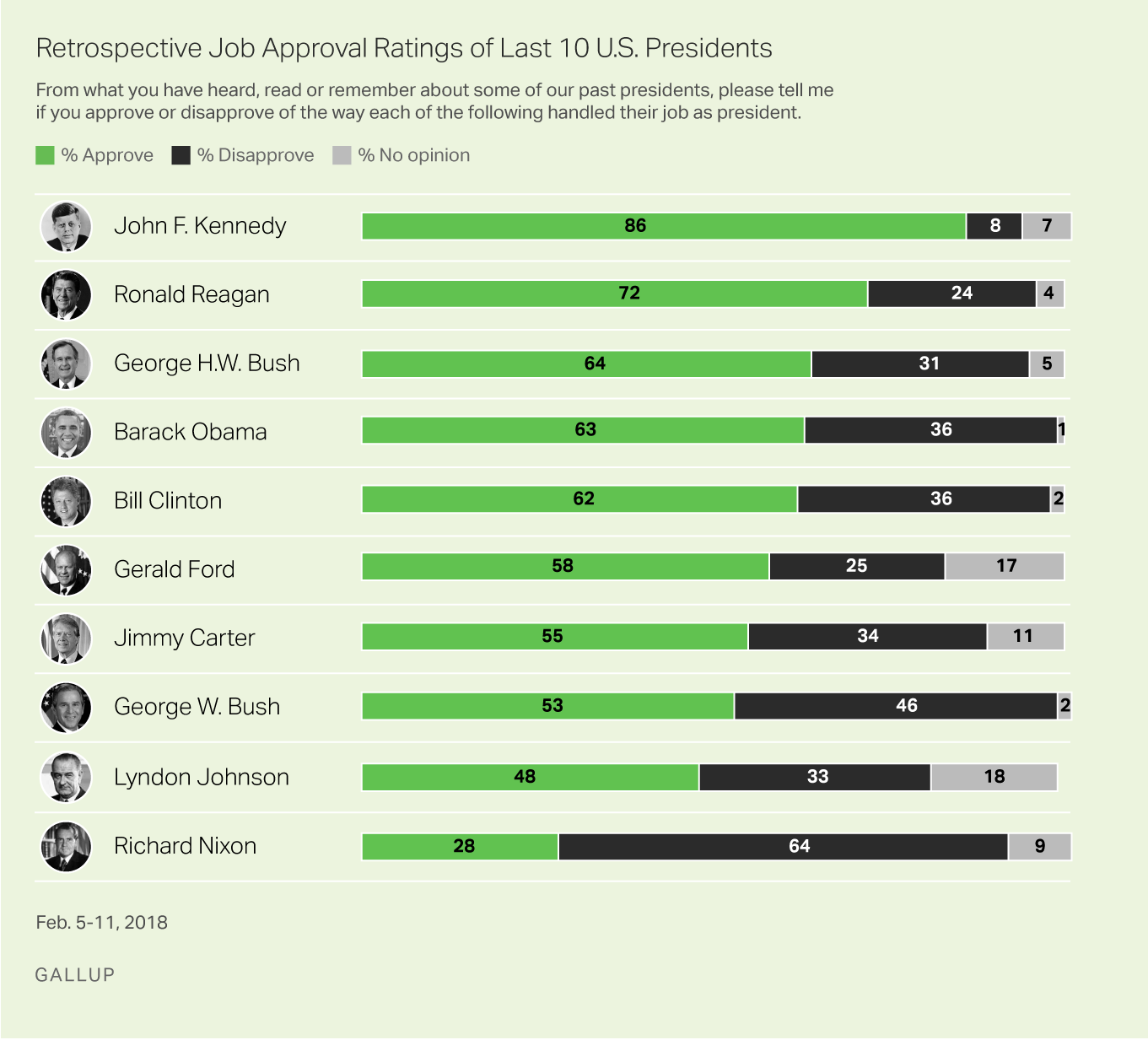RN, Clinton, and Triangulation
See, esp. 1:30
"So what did you think of him?" I asked Richard Nixon after his first meeting with Bill Clinton.
"You know," Mr. Nixon replied, "he came from dirt and I came from dirt. He lost a gubernatorial race and came back to win the Presidency, and I lost a gubernatorial race and came back to win the Presidency. He overcame a scandal in his first campaign for national office and I overcame a scandal in my first national campaign. We both just gutted it out. He was an outsider from the South and I was an outsider from the West."
...
He thought the Whitewater affair could pose serious problems. When I pointed out that the poll numbers reflected no damage to Mr. Clinton's popularity, Mr. Nixon observed that Watergate had not hurt him either, until the televised Senate hearings. "The American people don't believe anything's real until they see it on television," he said. "When Whitewater hearings are televised, it will be Clinton's turn in the bucket."
It’s well known that I have a tattoo of Nixon on my back. It’s not a political statement, but a daily reminder that in life, when you get knocked down, when you strive for something and you fail, when you are disappointed and discouraged, you have an obligation to get up off the canvas and get back in the fight. It’s about resilience and persistence.
‘Until one has been in the deepest valley, one cannot appreciate the majesty of the highest mountain top,’ Nixon said. ‘A man is not finished when he is defeated. He is only finished when he quits.’
After my release on bail, I flashed Nixon’s famous ‘V for Victory’ sign on the courtroom steps. Two years of fake news reports that I would be charged with Russian collusion, conspiracy and treason have neither destroyed my spirit, nor my resolve to fight for exoneration. Like Nixon, I am not a quitter. This November, I will fight for total exoneration in my trial. I am not guilty, and I intend to prove it.
Trump pardoned him.
Lessons
- From In the Arena: "Politics is battle, and the best way to fire up your troops is to rally them against a visible opponent on the other side of the field. If a loyal supporter will fight hard for you, he will fight twice as hard against your enemies.”
- From the farewell to the WH staff: "Always give your best, never get discouraged, never be petty; always remember, others may hate you, but those who hate you don't win unless you hate them, and then you destroy yourself."
Do not put your trust in princes,
in human beings, who cannot save.
When their spirit departs, they return to the ground;
on that very day their plans come to nothing.







